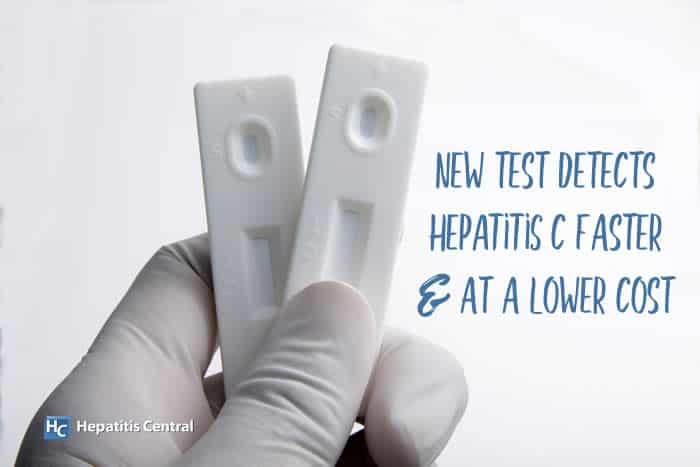New Test Detects Hepatitis C Faster and at a Lower Cost


If caught early, liver infection due to the hepatitis C virus can be effectively treated. Yet, if left untreated, serious health issues can occur. Liver damage, scarring of the liver (cirrhosis), and liver cancer are all potential consequences of untreated hepatitis C. For almost 16,000 people per year, the consequence is death. (1)
Early detection and treatment are critical to keeping this liver disease in its most treatable form. That’s the goal of a new point-of-care test, potentially changing the outcome for a large number of patients.
How Current Hepatitis C Testing Falters
Currently, if it is suspected that you have hepatitis C, a blood test can be conducted to determine if any of the hepatitis C virus antibodies are present. It’s not uncommon to take days, if not weeks, for the results of this test to be received.
Not only does this steal valuable time that could have been used to start treatment protocol, but it also increases the risk that patients won’t attend a follow-up appointment to hear their results. This places the responsibility on healthcare providers to find ways to get in touch with these patients—who are oftentimes from low to middle-income areas with limited means—which can delay treatment. If they can’t reach the patient via phone or email, it may prevent treatment entirely.
Additionally, if the patient doesn’t have medical insurance that covers the cost of the blood test, it may be unaffordable. Again, this could prevent or delay treatment. But one newly developed test appears to solve all of these issues.
New Point-of-Care Hepatitis C Test
Since the appearance of the novel coronavirus now known as COVID-19, we’ve heard a lot about point-of-care testing. This type of testing involves performing a test outside of the laboratory (such as in a doctor’s office, at a pharmacy, or even at home), offering instant results.
Researchers from the University of Glasgow in the United Kingdom have found a way to have a point-of-care test for hepatitis C.

In an article published by Nature Communications, these experts explain that the results of this new test can be received in less than 40 minutes, eliminating long wait times. It also negates the need for the results to be read by highly qualified lab personnel, thereby reducing the cost. (2)
This new test uses loop mediated isothermal amplification (LAMP), which is highly sensitive to the hepatitis C virus and targets some of the most important regions of interest within a certain genotype sequence. The results then appear on the device using a nucleic acid detection strip, similar to the readings you’d see on a store-bought pregnancy test. One band means the test is negative while two lines signify a positive result.
What’s perhaps most promising is how effective this new test is. During this research, it was determined that it correctly identified the presence of the hepatitis C virus as much as 97% of the time with no false positives. And it detected lower levels of the virus, even exceeding the recommendations of the World Health Organization.
What This Means for People with Hepatitis C
Access to a point-of-care hepatitis C test would enable people to learn quickly whether they have this liver disease, which also means earlier treatment. It also improves testing accessibility to individuals who lack health insurance that covers this cost, removing this barrier to early diagnosis.
Since it detects the presence of hepatitis C at lower rates, testing options such as this can help catch this disease before it can do major liver damage. This helps improve treatment outcomes, providing the best possible results for individuals infected with the hepatitis C virus.
(1) Centers for Disease Control and Prevention. (2020, July 28). Viral Hepatitis: Q&As for the Public. Retrieved December 6, 2021, from https://www.cdc.gov/hepatitis/hcv/cfaq.htm
(2) McConnell, W., Davis, C., Sabir, S., et al. (2021, November 30). Paper Microfluidic Implementation of Loop Mediated Isothermal Amplification for Early Diagnosis of Hepatitis C Virus. Nature Communications. doi: https://doi.org/10.1038/s41467-021-27076-z







